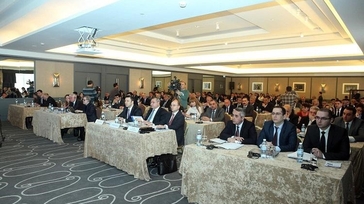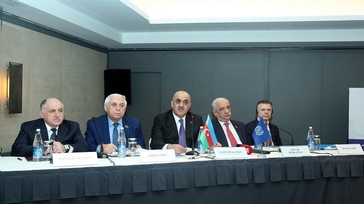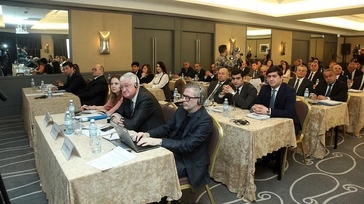Baku Hosts PES Course under 2017-2030 Employment Strategy
On 27 February – 1 March 2017, ILO Moscow Office conducted a three-day training course in Baku for employees of Public Employment Services (PES) of Azerbaijan’s Ministry of Labour and Social Protection of Population.

Senior officials and representatives of the Ministry of Labour and Social Protection of Population, the Trade Unions Confederation (ATUC), the National Confederation of Entrepreneurs (Employers') Organisations (AEK), the Parliamentary Committee on Labour and Social Policy, and the International Labour Organization (ILO), as well as external experts, participated in the event.

Hadi Rajabli, Chairman of the Parliamentary Committee on Labour and Social Policy, particularly welcomed the opportunity to learn from best international practices of PES operation and labour market regulation.

According to Mammad Musayev, President of the AEC, employers are actively involved in the implementation of the country’s labour market and employment policies. He emphasised the importance of effective cooperation between employers and PES for better labour market outcomes and social dialogue.
Mikhail Pouchkin, ILO official, stressed the importance of `strengthening PES capacity in the current socioeconomic context of Azerbaijan, linking it to the DWCP and the national strategic documents.
The PES course combining theory and interactive assignments covered a broad range of topics, such as an overview of PES, its key target groups and service models; active labour market programmes, including those targeting youth and vulnerable groups; labour market information systems, and other relevant issues. These topics were presented by Julia Surina, ILO official, as well as ILO international experts Yuriy Gertsiy and Jens Sibbersen.
A presentation by Michael Mwasikakata, ILO HQ Senior PES Specialist, of the ILO international labour standards concerning employment services in the context of a comprehensive employment policy framework, complemented the course.
This training course was the first in a comprehensive package of training activities for national PES that will be offered to the tripartite constituents in Azerbaijan; two other training sessions for PES officials are scheduled for 2017.